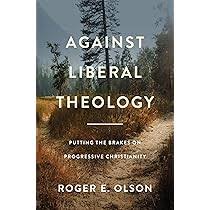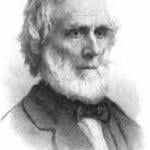Liberal Theology and Jesus Christ
Here I continue my discussion of my book Against Liberal Theology with Chapter 5: Jesus Christ in Liberal Theology. If you have read the chapter, you may comment and/or ask a question. If you have not read the chapter, you may only ask a question.
Jesus asked his disciples who people said he was. Classical, traditional, orthodox Christianity, real Christianity, has always said he is the Son of God, even God the Son. The pagan philosopher Celsus wrote in the second century that Christians worship a man as God, referring to Jesus Christ. The World Council of Churches requires member churches to affirm that Jesus Christ is God and Savior.
All liberal theologians depart from the high Christology of orthodox Christianity, demoting Jesus Christ to the status of “a person who discloses the fundamental dynamic and excellence at work in creation” and “the paradigmatic disclosure of God’s living wisdom, will, and purpose as well as of human life in appropriate relation to God.” (Ottati, p. 118)
With few exceptions, liberal theologians pay Jesus glowing compliments, but always only as a man with an abundance of God-consciousness who revealed God in a way higher and stronger than any other man. Except that some liberal theologians such as John Shelby Spong denied that Jesus was necessarily the only savior.
The point of my chapter is that liberal theology in general has only a functional or degree Christology in which the man Jesus functioned as God and was different from other human beings only in degree, not in kind. All deny the preexistence of Jesus Christ except possibly in the mind of God (Ritschl).
A question that must be asked of liberal theologians is whether it is ever right to worship the man Jesus? Is Jesus worthy of worship? That is, true worship and not just “veneration.” Christians have always worshiped Jesus.
A very big problem with liberal Christology is the door it opens to pluralism, the idea promoted by Paul Knitter and John Hick that Jesus is the savior for Christians but not for everyone and that there are multiple saviors.
Spong and Ottati admitted/admit that it is possible that liberal theology, because of its Christology, MAY have arrived at liberal theologian Ernst Troeltsch’s prophecy that Christianity may someday morph into a different religion. Both think not, but they at least it may appear so. And it does appear so to orthodox Christians. And to me.
In the chapter I provide numerous quotations from acknowledged liberal theologians from 19th century Unitarian Theodore Parker to Ottati to demonstrate liberal theology’s departures from biblical, orthodox, traditional, true Christianity.
Remember that my book is not an attempt to disprove liberal theology; it is only my attempt to demonstrate that liberal theology is different from Christianity as Christianity has always been understood by Christians (with the exceptions of marginal cults and sects). “Christianity” must mean something; it can’t mean whatever someone says it means. If it is compatible with anything and everything, it is meaningless. That’s all I’m saying: that liberal theology stretches the meaning of “Christianity” too far and that liberal theologians should just admit they are really Unitarians and join the those ranks. (Even liberal theologians have generally not acknowledged Unitarians as Christians and the WCC and National Council of Churches do not include them.)
Everyone has a legal right to call themselves “Christians” and I need only mention many cults to prove that the label is often misused. Is Christian Science, the belief system espoused by The Church of Christ Scientist, truly, authentically Christian? If someone says yes, then I know they either do not understand Christian Science or they think of Christianity as endlessly flexible to the point of being meaningless. (That is, of course, my opinion about Christian Science and I acknowledge that Christian Scientists, some of which I have known and admire as human beings, disagree.)
*Note: If you choose to comment, make sure you have read the chapter. If not, you may ask a question. But do not answer your own question! Keep you comment or question relatively brief (no more than 100 words), on topic, addressed to me, civil and respectful (not hostile or argumentative), and devoid of pictures or links.*













